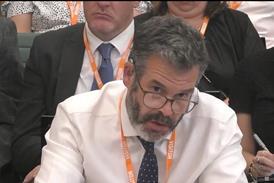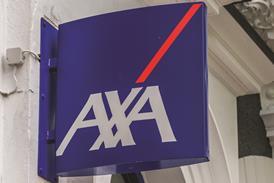Decisions filed recently with the Law Society (which may be subject to appeal)
Raja Shazad Khan and Colin Anthony Goldring (1)
Application 12263-2021
Hearing 20 April, 4 May 2022
Reasons 27 May 2022
The Solicitors Disciplinary Tribunal ordered that the first respondent (admitted 2008) should be suspended from practice for 12 months from 4 May 2022.
Upon the expiry of that fixed term of suspension, the first respondent should be subject indefinitely to the following conditions imposed by the SDT: that he might not (i) be a manager or owner of an authorised body; (ii) practise on his own account under regulation 10.2(a) or (b) of the SRA Authorisation of Individuals Regulations; (iii) act as a compliance officer for legal practice, or compliance officer for finance and administration, or money laundering reporting officer, or money laundering compliance officer, or head of legal practice, or head of finance and administration for any authorised body; (iv) hold or receive client money, or act as a signatory to any client or office account, or have the power to authorise transfers from any client or office account; with liberty to either party to apply to the SDT to vary those conditions.
While in practice as a solicitor at and the sole equity owner of Justice Solicitors Ltd, the first respondent had caused, allowed or failed to prevent the firm’s improper provision of a banking facility to client A, absent an underlying legal transaction or a service forming part of the normal regulated activities of solicitors, thereby breaching rule 14.5 of the SRA Accounts Rules 2011 and principles 6, 7 and 8 of the SRA Principles 2011.
He had caused, allowed or failed to prevent the payment, by or at the behest of the second respondent, of monies totalling up to €8,310,780, from the firm’s client account to third parties, without client A’s knowledge and/or informed consent, thereby breaching rule 20.1 of the 2011 rules, and principles 4, 5 and 10 of the 2011 principles.
He had failed adequately or at all to supervise the second respondent’s conduct of one or more matters relating to client A, thereby breaching principles 6 and 8 of the 2011 Principles.
He had failed fully to comply (or to ensure the firm’s compliance) with the 2011 Accounts Rules and the SRA Accounts Rules 2019 in that he had failed, adequately or at all: (i) to conduct client account reconciliations at least once every five weeks, in breach of rule 29.12 of the 2011 Accounts Rules (or rule 8.3 of the 2019 Accounts Rules); (ii) to keep and maintain proper and accurate accounting records, in breach of rules 1.2(f) and 29.1 of the 2011 Accounts Rules (or rule 8.1 of the 2019 Accounts Rules); (iii) to return client money promptly, in breach of rule 14.3 of the 2011 Accounts Rules (or rule 2.5 of the 2019 Accounts Rules); (iv) to remedy or correct breaches promptly upon discovery, in breach of rules 6 and 7 of the 2011 Accounts Rules (or rule 6.1 of the 2019 Accounts Rules); or (v) to obtain any or adequate accountant’s reports, in breach of rule 32 or rule 32A of the 2011 Accounts Rules (or rule 12.1 of the 2019 Accounts Rules). In so failing, he had breached principles 4, 6, 7 and 10 of the 2011 principles, and principles 2 and 7 of the 2019 principles.
The parties had invited the SDT to deal with the allegations against the first respondent in accordance with a statement of agreed facts and proposed outcome.
The first respondent was prepared to make full admissions to the allegations against him. The SDT was satisfied to the required standard that his admissions had been properly made.
The first respondent was highly culpable in respect of all the allegations. His actions had contributed to a considerable financial loss. His misconduct had harmed the reputation of the profession by his failure to uphold public trust.
There had been no allegation of lack of integrity, dishonesty or recklessness. In the absence thereof, strike-off did not seem appropriate.
A fixed term of suspension was to be applied when the SDT had concluded that a respondent should be immediately removed from practice, but that the protection of the public and of the reputation of the legal profession did not require that they be struck off.
After very serious consideration, the SDT was prepared to approve the agreed outcome proposed in respect of the first respondent.
The first respondent was ordered to pay costs of £20,000.
Raja Shazad Khan and Colin Anthony Goldring (2)
Application 12263-2021
Hearing 20 April, 4 May 2022
Reasons 27 May 2022
The SDT ordered that as from 4 May 2022, except in accordance with Law Society permission: (i) no solicitor should employ or remunerate the second respondent in connection with his practice as a solicitor; (ii) no employee of a solicitor should employ or remunerate the second respondent in connection with the solicitor’s practice; (iii) no recognised body should employ or remunerate the second respondent; (iv) no manager or employee of a recognised body should employ or remunerate the second respondent in connection with the business of that body; (v) no recognised body or manager or employee of such a body should permit the second respondent to be a manager of the body; and (vi) no recognised body or manager or employee of such a body should permit the second respondent to have an interest in the body.
While employed or remunerated by Justice Solicitors Ltd as a trainee solicitor and/or as a consultant, the second respondent had been guilty of conduct of such a nature that, in the opinion of the SRA, it would be undesirable for him to be involved in a legal practice going forward, including by reason of the following matters.
He had caused or allowed the firm’s improper provision of a banking facility to client A, absent an underlying legal transaction or a service forming part of the normal regulated activities of solicitors, thereby breaching rule 14.5 of the SRA Accounts Rules 2011, and principles 6, 7 and 8 of the SRA Principles 2011.
He had caused or allowed the payment of monies totalling up to €8,310,780 from the firm’s client account to third parties without client A’s knowledge and/or informed consent, thereby breaching rule 20.1 of the 2011 Accounts Rules, and principles 4, 5 and 10 of the 2011 principles.
While instructed by client A or his agent(s) in relation to the purchase of one or more high-value motor cars, he had failed, adequately or at all: (i) to undertake client due diligence on client A and/or his agent(s); (ii) to verify that those providing him with instructions to make payments from client A’s money to third parties (or purporting to do so) were duly authorised to provide such instructions; (iii) to undertake checks to identify the source of client A’s funds; (iv) to identify client A (at least potentially) as a politically exposed person or as a family member or known close associate of a PEP and to manage the enhanced risks accordingly; (v) to undertake checks on the recipients of the funds paid out purportedly on behalf of client A; or (vi) to maintain proper files or documentation in relation to the transactions, thereby failing to achieve outcome 7.5 under the SRA Code of Conduct 2011, and breaching principles 6, 8 and 10 of the 2011 principles.
While acting for client B in relation to an employment dispute, he had signed an endorsement on a settlement agreement, falsely and misleadingly purporting to confirm that he was ‘a relevant independent legal adviser (as defined in section 203 of the Employment Rights Act 1996)’, when he was not, thereby breaching principles 2 and 6 of the 2011 principles.
The parties had invited the SDT to deal with the allegations against the second respondent in accordance with a statement of agreed facts and proposed outcome. The SDT was satisfied to the required standard that the second respondent’s admissions had been properly made.
The second respondent had been the person with conduct of the transactions which were the subject matter of the allegations relating to client A.
The exact degree of harm to client A had yet to be quantified but the second respondent’s conduct had harmed the reputation of the legal profession.
The SDT was quite clear that for the protection of the public a section 43 order should be imposed on the second respondent. It then had to consider whether there should be a fine in addition.
While sanction was entirely a matter for the SDT, it had to have regard to proportionality and also that a section 43 order was the ultimate sanction that could be imposed upon an unadmitted person. In the very particular circumstances of the case, including the withdrawal of the allegation of dishonesty subsequent to the SRA asking for the imposition of a fine, the SDT was prepared to approve the agreed outcome in the terms proposed.
The second respondent was ordered to pay costs of £13,000.





























